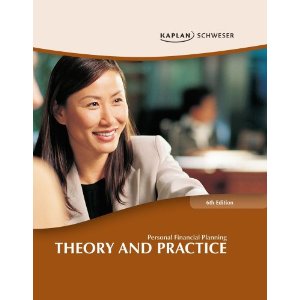 While I was taking “Introduction to Financial Planning” last year, I used the formula in my textbook to figure out how much money we’re going to need in retirement income. This is the formula your planner, if you have one, would also have been taught to use.
While I was taking “Introduction to Financial Planning” last year, I used the formula in my textbook to figure out how much money we’re going to need in retirement income. This is the formula your planner, if you have one, would also have been taught to use.
First, planners take 80 percent of your salary, adjusted for inflation (financial planners call this “replacement rate”). They multiply that number by the number of years you expect to live in retirement, and then figure out the size of the nest egg that would produce that payout (again, adjusted for inflation) for the number of years you expect to live. Most planners subtract the amount you expect to receive from social security benefits, but not everyone believes the promised benefits will materialize.
Anyway, according to this formula (and some tables to back it up that appear in a recent study from The Center for Retirement Research at Boston College) I would have to save somewhere between 45 and 70 percent of my monthly pay (depending on rates of return on my investments and how old I am when I retire) to build a nest egg sufficient to draw 80 percent of my salary, even assuming that I got no more raises. Ever. Scary moment, I must say.
I don’t know if I could face living like a graduate student again. I can live simply, but it’s hard not to simply give up in the face of that sort of sacrifice, again.
Those of you who started working in your profession when you graduated from college and have been saving all along would never have to think about how to save half your income for retirement. (That’s the benefit of compounding. According to the CRR study, if you start saving at 25 you’ll build a substantial retirement account by saving 7 to 12 percent of your salary.)
I, however, didn’t finish my education until I was 30, spent two years getting a degree in another field, and engaged stable, professional employment at the age of 41. Not that I didn’t have work before that, not that I didn’t have some resources to put aside… Many people who made the educational and professional choices I did also face student loan debt, so I have a huge advantage in having borrowed less than $3000 during all those years of undergraduate and graduate study. Nor do I have children, who turn out to be rather expensive.
Bonnie-Jeanne MacDonald, a Canadian actuarial researcher who studies the financial conditions of retirement and the economic behavior of retirees, has questioned the usefulness of some of the financial planners’ standard assumptions. MacDonald told Reuters that making large reductions in standard of living before retirement is not without consequence. The return of higher income during retirement thus may not be worth the losses of lower pre-retirement standard of living.
MacDonald, her collaborators, and other North American researchers who look at economic behavior have found that we don’t spend consistently throughout retirement. Heads of households who are 65-75 years old spent, on average, 72 percent of the amount they did in their peak spending years (from 45-54). After age 75, we tend to spend about 55 percent of our peak spending.
I’m gradually increasing my retirement saving, assuming a fairly low rate of return, spending modestly. I will pull all of my financial documents out again and rework my plan.

by GadgetGrl
12 Jan 2012 at 08:55
Check out WISER http://www.wiserwomen.org/ Women’s Institute for a Secure Retirement. When I think about the issues you raise about retirement for the “next generation” whose government retirement benefits are uncertain, I think there are parallels with recent college grads who are having trouble finding jobs in their fields. I think the constrained economy and the fact that “we are all in this together” will lead to creative solutions that will foster relationships with people we might not otherwise meet.
For instance, the current housing crisis is prompting people to rethink their living arrangements and has people taking on tenants or room mates for financial reasons who might not otherwise have met these people or benefited from the relationship. I see a revival of “pot lucks” and tool sharing and bartering. I also see in my own life how I feel almost driven to “use up” the stuff I have and pass along the “stuff” that I no longer use/need. Freeing, actually.
by UPLives
12 Jan 2012 at 17:40
Thanks for the reference! I’ll check it out.
In my social circles pot lucks never faded! They are great ways to learn about the foods friends love and to develop the bonds the form around shared meals. I know some people who eat all of their meals out and have all of their get-togethers in restaurants, and I just can’t get used to it. I like to eat out, but I cherish time spent at home with friends (mine or theirs).
by GadgetGrl
14 Jan 2012 at 21:35
I’m discovering that eating fresh home made food is often tastier than stuff in restaurants. Although eating at Picnickins with you was a great experience. Eager to go there again. Did you go to Vegeria? Did you like the food?